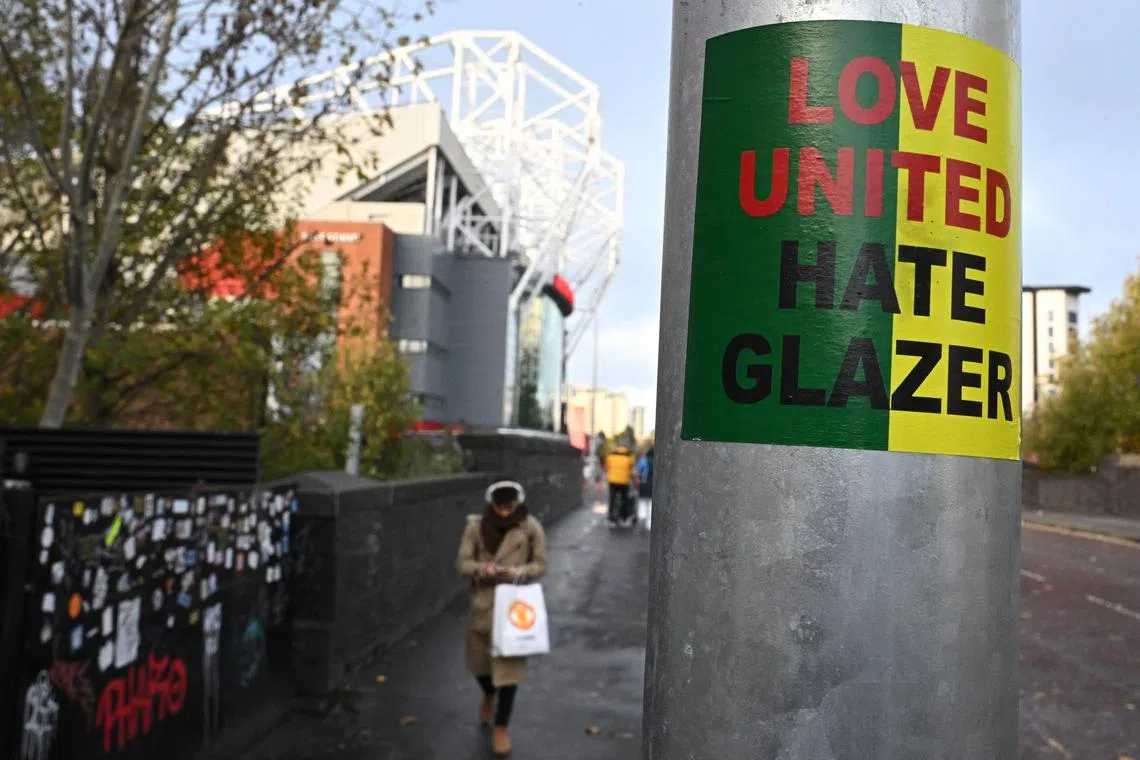Manchester United fans should be careful what they wish for
Even the club’s new owners will need to make a return on any investment in the football club.
Sign up now: Get ST's newsletters delivered to your inbox

Ever since the late Malcolm Glazer bought the club in 2005 in a leveraged buyout, United has been mined for dividends.
PHOTO: AFP
Chris Hughes
Follow topic:
It’s the news fans of Manchester United have been waiting for – the controlling Glazer family is considering a sale of the storied English football club. The question is whether a new owner would simply put a different face on the same issues that have dogged the Glazer era.
Ever since the late US tycoon Malcolm Glazer bought the club in 2005 in a leveraged buyout, United has been mined for dividends and its financial performance aided by the extreme commercialisation of the team’s brand internationally. What the fans care about is winning trophies and getting a better stadium. A full or partial sale could mark a fresh start, but the higher the price tag, the more aggressively new owners will have to run the club to justify the outlay.
The current owners will seek buyers
Trophy price
The forced sale of London rival Chelsea Football Club earlier this year
The club’s fans will care who it sells to. There was, after all, strong pushback against the possibility of buyout firm Apollo Global Management purchasing a stake earlier this year.
Some combination of wealthy individuals and private equity money makes most sense in terms of a buyer who would be both palatable to the crowd and able to pay what the Glazers are after. Even with a consortium, an offer would surely rely on a good chunk of debt financing. Commercial partners could bring expertise in marketing and stadium redevelopment, with the latter likely to cost in the region of £1 billion. And it remains possible that the Glazers choose to retain control while bringing in an investment partner to inject funds.
While United is already a revenue machine, with annual sales averaging around US$740 million over the last five years, its commercial potential may be far from fully realised. It has the biggest digital footprint of any English club, Dr Rob Wilson of Sheffield Hallam University points out. Expanding and monetising the global fan base is likely to be the bedrock of the investment case, not least as the English Premier League gains traction with US television audiences.
Liverpool sale affected
For Fenway Sports Group Holdings LLC, which recently hoisted a for sale sign above Liverpool Football Club,
Football legend Cristiano Ronaldo parted company with United this week
However, new owners will almost certainly also want to run United as a brand too: That is its business attraction. But their goal should be to carry the Old Trafford crowd with them. A commercially successful club is also one that should and can afford to invest in the sport. While Manchester United is a business, it is much more than just a financial asset. Potential buyers will need to convince the fans they care about football too. Bloomberg
Chris Hughes is a Bloomberg Opinion columnist covering deals. Previously, he worked for Reuters Breakingviews, the Financial Times and the Independent newspaper.

